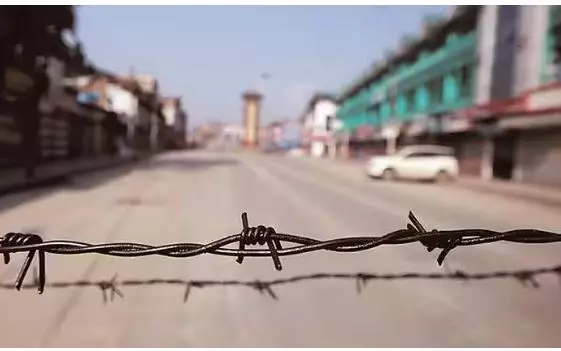
SC expresses concerns about Centre’s abuse of power in bifurcated Jammu and Kashmir
text_fieldsNew Delhi: During the ongoing hearing of petitions challenging the revocation of Article 370, the Supreme Court raised questions about the need for the bifurcation of Jammu and Kashmir. The Chief Justice of India, DY Chandrachud, led the discussion, expressing concerns over the potential misuse of the power to bifurcate states once granted to the Central government.
Justice Chandrachud and Justice SK Kaul highlighted how Punjab and certain northeastern states had faced similar challenges and upheavals in the past, leading to a discourse on whether the question of bifurcation should have been addressed through parliamentary channels.
The central government had previously argued that Jammu and Kashmir was indeed a unique case, citing differences that set it apart from states like Gujarat or Madhya Pradesh. Solicitor General Tushar Mehta had emphasized these distinctions.
However, the bench countered this argument by pointing out that multiple Indian states shared borders and had encountered difficulties.
Justice Kaul raised a crucial question regarding the power of Parliament to convert an existing state into a Union Territory. The discussion also delved into the role of the Constituent Assembly in relation to Article 370, with the court emphasizing that the President cannot override its provisions based solely on a recommendatory role.
The proceedings brought to light the necessity of evaluating the potential abuse of power in granting the Union the authority to reconfigure states. The court expressed concerns that if such powers were given across the board, it could lead to unforeseen consequences and misuse.






















